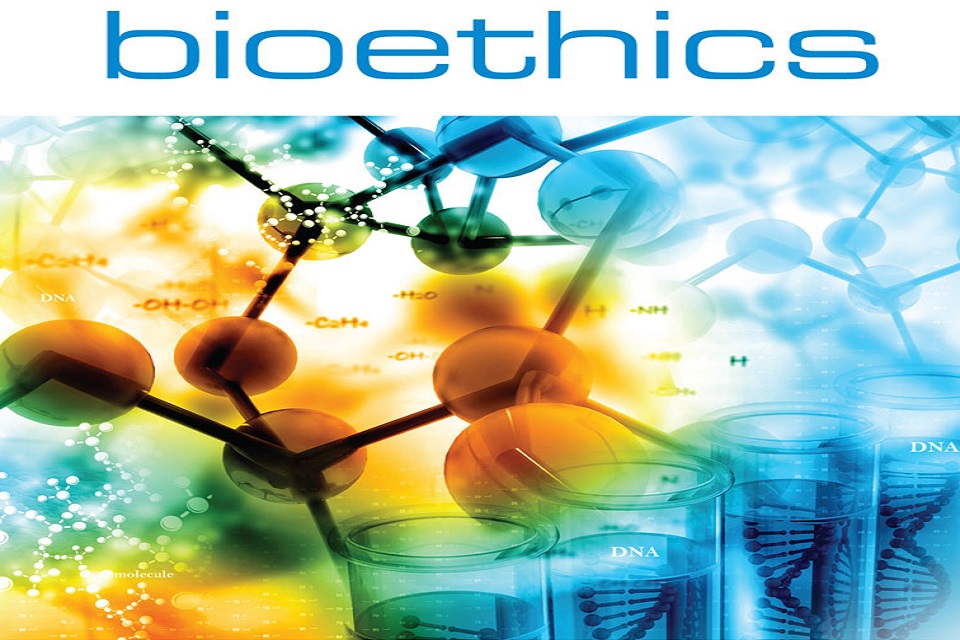Exploring Bioethics Topics for Students in 2023: From Environmental Ethics to Reproductive Ethics and End-of-Life Care

Introduction
Bioethics is the study of ethical issues related to medical and biological research, making bioethics topics for students in 2023 an important element of their research. It encompasses a wide range of topics, including the use of human and animal subjects in research, genetic engineering, reproductive technologies, end-of-life care, and access to healthcare.
The field of bioethics involves the application of moral principles and values to real-world situations in healthcare and biomedical research. It seeks to address ethical questions and dilemmas that arise in these fields by developing and evaluating ethical theories and principles, and by providing guidance for ethical decision-making.
Some of the key issues in bioethics include informed consent, privacy and confidentiality, the use of placebo controls in clinical trials, the allocation of healthcare resources, and the moral status of embryos and fetuses. Bioethicists may work in a variety of settings, including hospitals, research institutions, government agencies, and universities.
How to choose bioethics topics for students in 2023
Choosing a bioethics research topic can be a complex process, and it’s important to consider a range of factors to ensure that your topic is meaningful and relevant. Here are some important factors to consider while choosing bioethics research topics:
Significance
Significance
The significance of bioethics topics for students in 2023refers to the importance of the issue being explored. It is essential to consider the significance of the issue because research should be conducted to address problems that affect a large number of people or have significant ethical implications. When choosing a research topic, it is crucial to ask whether the issue being explored is a problem that is affecting a significant number of people or if it is a more niche issue that affects only a few individuals.
Additionally, it is important to consider whether the issue is currently receiving a lot of attention in the field of bioethics. If it is, then there may be a significant body of literature available on the topic, which can be beneficial for conducting research. If the issue is not currently receiving a lot of attention, then there may be an opportunity to contribute to the field by exploring the issue in greater depth.
Ultimately, choosing a significant bioethics topics for students in 2023can help to advance the field by providing insight into important ethical issues that affect society. It can also help to inform policy decisions and shape public discourse on ethical issues. Therefore, it is important to consider the significance of the issue being explored when choosing a bioethics research topic.
Relevance
When selecting a research topic in bioethics, it is crucial to consider its relevance to current debates and discussions in the field. The field of bioethics is continually evolving and responding to new developments and emerging technologies in biomedicine. As such, research that addresses current issues and debates is more likely to be relevant and impactful.
One way to assess the relevance of a research topic is to consider whether it is related to recent developments or emerging technologies in the field of biomedicine. For example, if there is a new genetic testing technology that raises ethical questions about privacy and discrimination, a research topic related to this technology would be highly relevant.
Furthermore, considering the relevance of a research topic to current debates and discussions in bioethics can help to ensure that the research has practical applications. Research that addresses current issues can inform policy decisions and shape public discourse on ethical issues in biomedicine.
selectingbioethics topics for students in 2023 that is relevant to current debates and discussions in bioethics is essential for producing research that has practical applications and can contribute to advancing the field. By choosing a relevant research topic, researchers can ensure that their work has a significant impact on the field and society as a whole.
Feasibility
Feasibility is a crucial factor to consider when selecting a bioethics research topic. It is essential to evaluate whether the research topic is feasible in terms of data collection, analysis, and resources. This evaluation helps to ensure that the research will be conducted efficiently and will produce meaningful results.
To evaluate the feasibility of a research topic, it is essential to consider whether there is enough information available to conduct meaningful research on the topic. For example, if the research topic requires collecting data from a specific population, it is important to determine if it is feasible to access that population and collect the required data. It is also important to evaluate the quality and relevance of the available data.
Furthermore, it is crucial to consider whether there are resources available to support the research. This may include funding, access to specialized equipment or facilities, or collaboration with experts in related fields. Evaluating the feasibility of a research topic also involves assessing whether the research can be completed within a reasonable time frame.
Assessing the feasibility of a research topic is crucial for ensuring that the research is conducted efficiently and produces meaningful results. By evaluating the availability of data, resources, and time, researchers can select a feasible bioethics topics for students in 2023and allocate their resources appropriately. This approach helps to increase the chances of producing high-quality research that contributes to the field of bioethics.
Ethical considerations
Ethical considerations are a critical aspect to consider when selecting a bioethics research topic. The ethical implications of a research topic may arise from the involvement of human or animal subjects or from the potential impact of the research on society.
If the research involves human subjects, it is essential to ensure that the research is conducted in an ethical manner. Researchers must obtain informed consent from study participants, protect their privacy and confidentiality, and ensure that the study does not cause any physical or emotional harm to the participants. Additionally, if the research involves vulnerable populations, such as children or individuals with cognitive impairments, extra precautions may be necessary to protect their rights and interests.
If the research involves animal subjects, it is important to ensure that the research is conducted in a manner that minimizes any potential harm to the animals. Researchers must obtain approval from an institutional animal care and use committee (IACUC), ensure that the animals receive appropriate care and treatment, and minimize any pain or discomfort that the animals may experience during the study.
Furthermore, it is crucial to consider the potential impact of the research on society. Researchers must consider the potential consequences of their research and take steps to ensure that the research is conducted in a manner that is consistent with the ethical principles of beneficence, non-maleficence, and justice.
Considering the ethical implications of bioethics topics for students in 2023 is essential for ensuring that the research is conducted in an ethical and responsible manner. By taking into account the potential impact of the research on human and animal subjects and society as a whole, researchers can select a research topic that is not only relevant and significant but also ethical and responsible.
Interdisciplinary approach
Bioethics research often involves complex ethical issues that require a multidisciplinary approach. Thus, considering whether a research topic requires an interdisciplinary approach is crucial for selecting a topic that can lead to meaningful results. An interdisciplinary approach can provide a broader perspective, promote a deeper understanding of complex ethical issues, and lead to more comprehensive and effective solutions.
Bioethics research often requires collaboration with other fields, such as law, philosophy, and social sciences. For example, a research topic on the ethical implications of gene editing may require collaboration with experts in genetics, law, and philosophy to address the ethical, legal, and social implications of this emerging technology. By working with experts from different fields, researchers can gain a better understanding of the topic and develop more robust and comprehensive solutions.
Furthermore, an interdisciplinary approach can help to ensure that the research is relevant to a broader audience. Research that incorporates different perspectives and disciplines is more likely to resonate with policymakers, practitioners, and the general public. This approach can also lead to a more significant impact on the field and society as a whole.
Considering whether a research topic requires an interdisciplinary approach is crucial for selecting a topic that can lead to meaningful and impactful research. By collaborating with experts from different fields, researchers can develop more comprehensive and effective solutions to complex ethical issues in biomedicine.
Personal interests and expertise
Selecting a bioethics research topic that aligns with your personal interests and expertise can be crucial for conducting meaningful research. Personal interests and expertise can lead to a more focused and motivated approach to the research, which can ultimately result in more significant findings and insights.
When choosing bioethics topics for students in 2023, it is important to consider what you are passionate about and what aspects of bioethics research interest you. For example, if you are passionate about reproductive rights, a research topic on the ethics of surrogacy may be of interest. Similarly, if you have expertise in neuroscience, a research topic on the ethical implications of brain-computer interfaces may be more suitable.
Moreover, choosing a research topic that aligns with your personal interests and expertise can make the research process more engaging and rewarding. Researchers who are passionate about their work are often more motivated and committed, which can lead to a more thorough and comprehensive approach to the research.
However, it is essential to ensure that personal interests and expertise do not bias the research. It is crucial to maintain objectivity and adhere to ethical principles and standards in conducting the research.
Selecting a bioethics topics for students in 2023 that aligns with personal interests and expertise can result in more meaningful and engaging research. By choosing a topic that is personally interesting, researchers can bring a greater level of passion and motivation to the research process. However, it is essential to ensure that personal biases do not affect the objectivity of the research.
bioethics topics for students in 2023
10 Medical Ethics Topics
1. Ethical Considerations in Organ Transplantation: Balancing Access and Fairness.
2. The Ethics of End-of-Life Decision-Making: Examining the Role of Advance Directives.
3. Medical Experimentation on Vulnerable Populations: A Critical Analysis of Historical Cases.
4. The Ethics of Gene Editing: Assessing the Risks and Benefits of Human Germline Editing.
5. Ethical Implications of Genetic Testing and Screening: Balancing Autonomy and Privacy.
6. Ethical Concerns in Artificial Intelligence-Assisted Medical Decision-Making.
7. Euthanasia and Physician-Assisted Suicide: A Comparative Analysis of Legal and Ethical Frameworks.
8. The Ethics of Pharmaceutical Marketing: Balancing Patient Safety and Industry Interests.
9. Health Inequalities and Access to Healthcare: A Critical Analysis of Ethical Implications.
10. The Ethics of Placebo-Controlled Trials: Examining the Debate on Informed Consent and Deception.
10 Environmental Ethics topics
1. Climate Change and Environmental Justice: Examining the Ethics of Global Responses.
2. Animal Ethics and Environmentalism: Exploring the Intersections of Two Moral Frameworks.
3. The Ethics of Sustainable Development: Balancing Environmental Protection and Economic Growth.
4. Ecological Restoration and Environmental Ethics: Examining the Ethics of Restoration Practices.
5. Environmental Ethics and Environmental Education: Assessing the Role of Ethics in Sustainability Education.
6. Environmental Ethics and Indigenous Knowledge: Examining the Ethical Implications of Traditional Ecological Knowledge.
7. The Ethics of Environmental Stewardship: Balancing Responsibility and Accountability.
8. Environmental Ethics and the Anthropocene: Assessing Human Responsibility for Environmental Degradation.
9. Environmental Ethics and Food Systems: Examining the Ethics of Agriculture and Animal Production.
10. Environmental Ethics and Climate Engineering: Assessing the Ethical Implications of Geoengineering.
10 Reproductive Ethics topics
1. The Ethics of Surrogacy: Examining the Legal and Social Implications of Surrogacy Practices.
2. Reproductive Autonomy and Consent: Assessing the Role of Informed Consent in Reproductive Decision-Making.
3. The Ethics of Embryo Research: Examining the Moral Status of Embryos in Scientific Research.
4. The Ethics of Fertility Treatments: Assessing the Social and Medical Implications of Assisted Reproduction.
5. Reproductive Ethics and Genetic Technologies: Examining the Moral Implications of Prenatal Testing and Genetic Engineering.
6. The Ethics of Abortion: Balancing Women’s Rights and Fetal Interests.
7. The Ethics of Reproductive Cloning: Examining the Social and Moral Implications of Cloning Technologies.
8. Reproductive Ethics and Disability: Assessing the Ethical Implications of Prenatal Testing and Selective Abortion.
9. The Ethics of Family Planning: Examining the Social and Environmental Implications of Population Control.
10. Reproductive Ethics and Global Health: Assessing the Ethical Implications of Access to Reproductive Healthcare in Developing Countries.
10 Biotechnology Ethics topics
1. The Ethics of CRISPR: Examining the Implications of Gene Editing Technologies.
2. Biotechnology and Animal Ethics: Assessing the Ethics of Animal Biotechnology.
3. Biotechnology and Intellectual Property: Examining the Ethical Implications of Patenting Life Forms.
4. The Ethics of Biobanks: Balancing Privacy and Access to Genetic Data.
5. Biotechnology and Human Enhancement: Assessing the Ethical Implications of Genetic Enhancement Technologies.
6. Biotechnology and Health Inequalities: Examining the Ethical Implications of Access to Biomedical Technologies.
7. The Ethics of Biomedical Research: Assessing the Social and Ethical Implications of Research Practices.
8. Biotechnology and Food Ethics: Examining the Ethics of Genetically Modified Crops and Foods.
9. The Ethics of Biotechnology Regulation: Balancing Safety and Innovation in Biotech Industries.
10. Biotechnology and Global Justice: Assessing the Ethical Implications of Access to Biotechnologies in Developing Countries.
10 End-of-Life Ethics topics.
1. The Ethics of Physician-Assisted Suicide: Examining the Moral and Legal Implications of Assisted Dying.
2. End-of-Life Decision-Making and Autonomy: Assessing the Role of Patient Autonomy in End-of-Life Care.
3. The Ethics of Withholding and Withdrawing Life-Sustaining Treatment: Balancing Patient Interests and Professional Obligations.
4. End-of-Life Care and Cultural Diversity: Examining the Ethical Implications of Diverse Beliefs and Values.
5. The Ethics of Palliative Care: Assessing the Social and Ethical Implications of End-of-Life Symptom Management.
6. End-of-Life Ethics and Advanced Directives: Examining the Legal and Moral Implications of Advance Care Planning.
7. The Ethics of Hospice Care: Balancing Patient Interests and Family Obligations in End-of-Life Care.
8. End-of-Life Care and Medical Futility: Assessing the Role of Medical Futility in End-of-Life Decision-Making.
9. The Ethics of Organ Donation: Examining the Moral and Social Implications of Organ Donation at the End of Life.
10. End-of-Life Ethics and Social Justice: Assessing the Ethical Implications of Access to Quality End-of-Life Care for Marginalized Populations.


